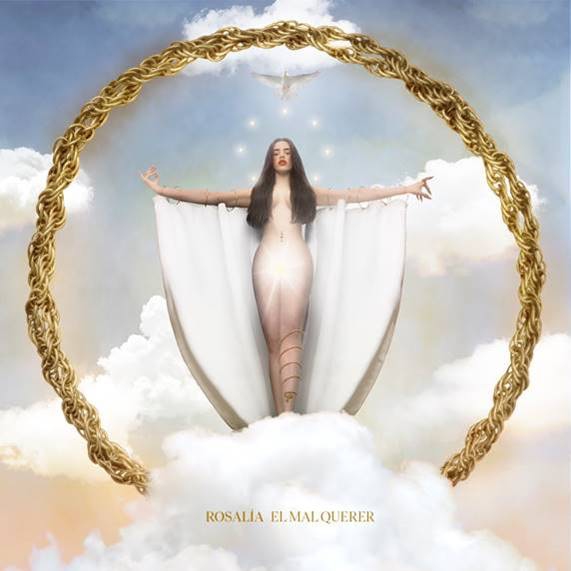Rosalía, at the young age of 25, keeps making history and excelling in her music career; after the success of ‘Malamente’ and ‘Pienso en Tu Mirá’, the release of her second album has left nobody indifferent. El Mal Querer, produced by Rosalía herself and her collaborator Pablo ‘El Guicho’, is a conceptual album which follows an honest depiction of how complicated love can be. Each track is composed of a title, a subtitle, and a chapter name. Rosalía, herself, affirms that she found inspiration in the medieval novel Flamenca. El Mal Querer is a masterpiece built with the essence of the Flamenco genre, however, it contrasts with different music genres which make it difficult to classify within the music world.
The order of the chapters makes the listener a witness to the development of a dark and toxic relationship, in which the woman is the main victim. The album opens with ‘Malamente’, followed by ‘Que No Salga la Luna’, correlating flamenco and urban music. ‘De Aquí No Sales’ and ‘Reniego’ clearly show the suffering of a woman who becomes the prey of her relationship and a victim of gender violence. Rosalía’s voice is presented as powerful and emotive, with a Middle Eastern touch in her melismas, leaving evidence of her broad vocal range. This is also depicted in ‘Nana’, a minimalistic song inspired by the Gregorian chant, where she sings a capella together with a chorus.
Auto-tune plays an important role in ‘Bagdad’, which could be considered the fourth single after ‘Di Mi Nombre’. ‘Maldición’, although created with a synthesizer, still contains a Flamenco essence, which is noticeable throughout the whole album. It closes with ‘A Ningún Hombre’, which presents the awakening of the female character. Once again, she sings a capella while auto-tune is used in the backing vocals and instruments.
This peculiar album can be considered a hymn to female empowerment; a marvelous masterpiece that encourages women to rise from ‘hell’ (toxic relationships), and shows them that there can be a way out.
Lydia Puntas Salas

